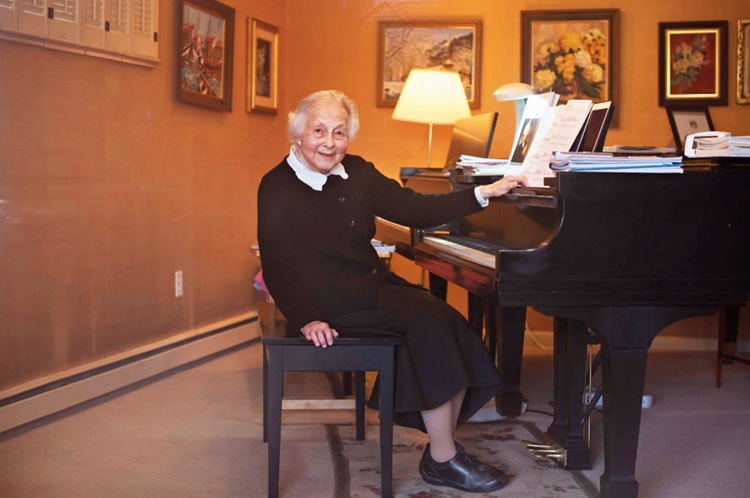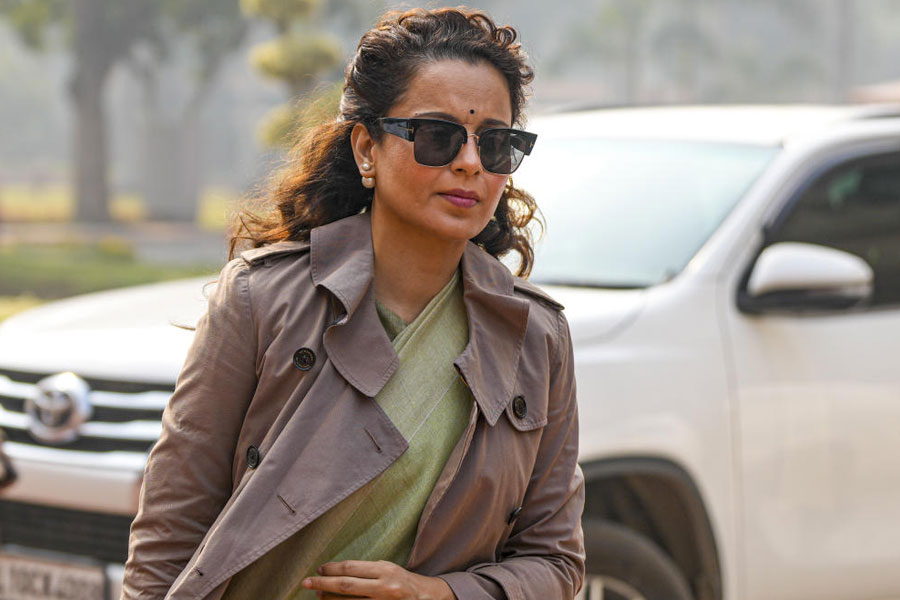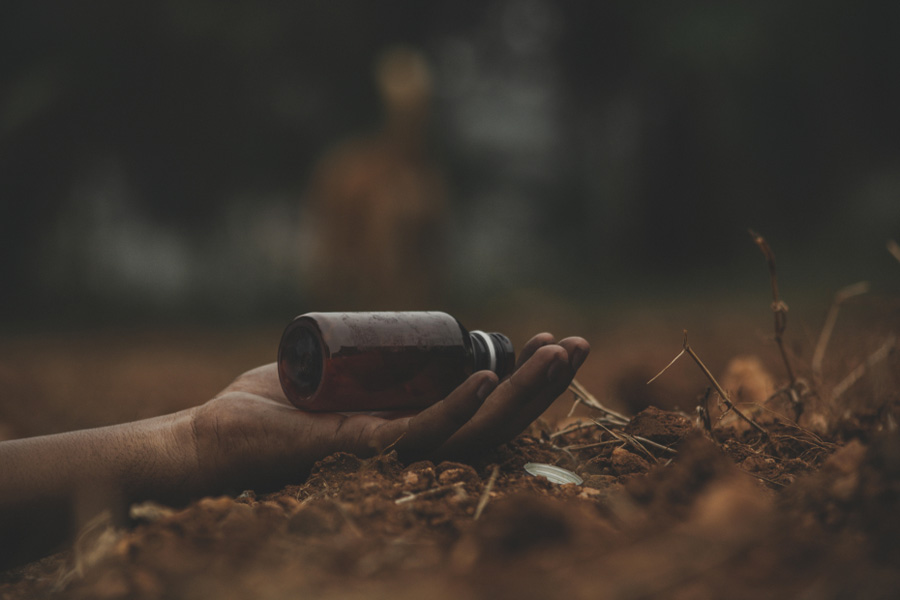For more than 50 years, Cornelia Vertenstein, 92, has taught piano lessons from her home in Denver. Every week, through all those years, a parade of children came to her door, books in hand.
They practiced for an hour at the Chickering & Sons piano that Vertenstein and her former husband, both Holocaust survivors from Romania, bought for $600 in 1965, two years after landing in the US.
And when the children left, at least the little ones, Vertenstein gave them a sticker for encouragement. They gave her a hug.
The coronavirus has put an end to those visits. But Vertenstein would not let it put an end to the lessons. And she certainly would not let it cancel spring recitals.
“I believe strongly in continuity,” Vertenstein said. “My students learn to be persistent in what they are doing. I try to teach them not only how to learn, but how to work.”
Friends call her Nellie, she said, but most students and parents respectfully call her D. Vertenstein, a nod to her doctorate in music and her formal manner. She has been teaching piano since she was 14, first going door-to-door in war-torn Romania.
She has about 30 students these days, ages 6 to 17. Normally, they come to the house on Fairfax Street, one at a time. Some come as early as 6.30am, some as late as 7pm, some on the weekends.
“It’s very nice to see children at the door,” Vertenstein said. “They come, and they are smiling and ready for piano.”
When the coronavirus swept in, most people were forced to stay at home. Special concern was reserved for older adults. Vertenstein was suddenly alone.
She insisted that the lessons should continue. She called the students on their cellphones, using FaceTime on her iPad, at the exact time when their lessons were scheduled.
“They know that when she calls, they need to be at the piano, books prepared, with a pencil and already warmed up,” said Yvette Frampton, a mother of three of Vertenstein’s students.
They set up their phone cameras so that vertenstein can see them play. She listens, watches, advises.
In a pre-recorded introduction for one of the spring recitals, Vertenstein talked about her own education and childhood.
One of the few unexpected gifts of staying inside is that people might feel closer to others, including newscasters, friends and co-workers, because they see them in their home environments.
And so it is for a piano teacher who has always had students in her house without ever seeing theirs.
“It helped me know more about my students — what kind of life they have,” Vertenstein said. “It’s not much, just one room, but it is illuminating to me because I know where they come from. I know a little bit better who they are.”
As the virus spread, worry grew about two spring recitals, scheduled at a hall at the University of Denver. It soon became clear that there would be no gatherings.
So Frampton explained Zoom to Vertenstein. And on a recent Sunday, a virtual crowd gathered at 2pm to watch the young students play the pieces that they had rehearsed for months. The next Sunday, the older children had their recital.
Families tidied their rooms, cleaned off their pianos and rehearsed camera angles and lighting. Parents, siblings and grandparents gathered to watch. Everyone was dressed in their Sunday best.
Programmes were distributed by email. Plato was quoted at the top: “Music is a moral law. It gives soul to the universe, wings to the mind, flight to the imagination and charm and gaiety to life and to everything.” Vertenstein recorded a message to play at the start of the recitals. She worried about being too emotional in the moment.
“With great pride, I introduce my students who prepared themselves with discipline and determination in difficult circumstances,” she said. “When I was a little girl, I could not go to public schools because of my religion. And they created a little school in the basement of an old building, which sometimes had heat and sometimes didn’t. Great minds and achievements came out of that school, which taught me that in any situation you can strive, learn, look ahead and have dreams.” The children do not know much of Vertenstein’s past — the yellow star she had to wear as a teenager during the war, the rocks thrown at her, the fist of fascism replaced by the slogging brutality of communism. She only hints at them.
“It’s very painful to talk about,” Vertenstein said in a FaceTime interview. “Besides this, why should I tell those kids such sad stories?”
But the stories silently inhabit her lessons. She was a piano prodigy herself, studying under the strict master Florica Musicescu.
There was the excruciating desire through the 1950s to leave Romania, the escape to Israel with her husband and young daughter in 1961, the arrival in America in 1963. “I cannot forget the moment when from the boat we saw the Statue of Liberty,” she said, her voice rising with excitement.
“I cannot tell you — you cannot understand the feeling — we were screaming! It was sunny, and we were on the water, and I can see it, like it is this minute!”
Mathieu and Cornelia Vertenstein left Romania together. They raised a daughter, Mariana, now a 64-year-old scientist in Colorado with two grown children of her own. Mathieu Vertenstein never escaped the ghosts of the labour camp where he spent much of World War II, Vertenstein said.
They divorced long ago, after 30 years, but remained close. He died a week before the first recital. There was a virtual funeral. Vertenstein took his death hard, but insisted that the shows go on.
The first recital began with a young girl named Olivia playing Faber’s No Moon Tonight. One by one, house by house, the children stepped to the bench at their piano and played their best renditions. Maya did Tchaikovsky. Harry did Beethoven.
The older students began with a narrated PowerPoint presentation about the Baroque period. Then they settled into a blur of sonatas and minuets. Jennie opened with Bach. Margaret tackled Haydn and Chopin. Brandon threw in Schubert. Sophia ended with Debussy.
Kanshita Dam, 13, performed Beethoven’s Six Variations on the Duet.
Frampton, the mother of three pianists, played the role of Zoom director from her house. She flipped everyone’s mute buttons at the end of each performance so the applause could be captured and heard. She silenced everyone but the next performer.
One person’s reaction was missing: Vertenstein. She watched and listened but did not turn her camera on. She did not want her pupils to be distracted by her expressions while she sat, virtually, over their shoulders.
“I get very nervous when my students play,” Vertenstein said, “and I didn’t want them to see me and think, ‘Oh, she is not pleased with me.’ I prefer them to be free, to be themselves and to handle the situation.”
Which they did. When it ended, Ms. Vertenstein congratulated the students, thanked the audience and wished for more normal times ahead. Soon, she hopes, the faces she sees will be in her living room, on her piano bench. There will be stickers and hugs, maybe a party in the yard with doughnuts.
“I really look forward to seeing people — real people — to have human contact,” she said.Until her doorbell rings again, Vertenstein will not let a mere pandemic keep her from her students. She held lessons, online, the day after the first recital and every day since. New York Times News Service











